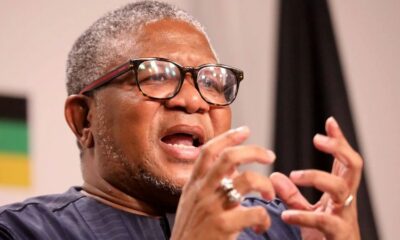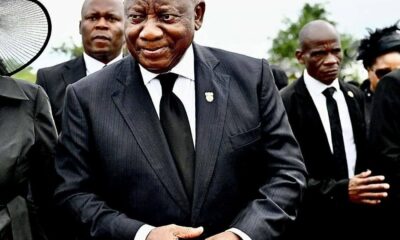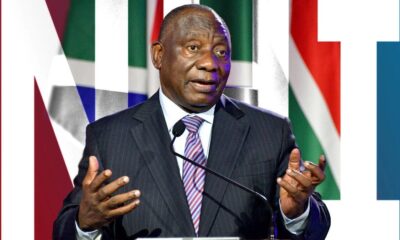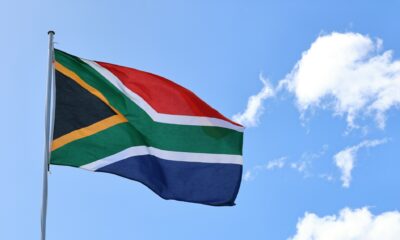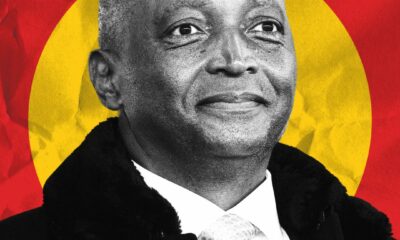News
Washington Turns Up the Heat: A New Diplomatic Rift Tests South Africa’s G-20 Moment
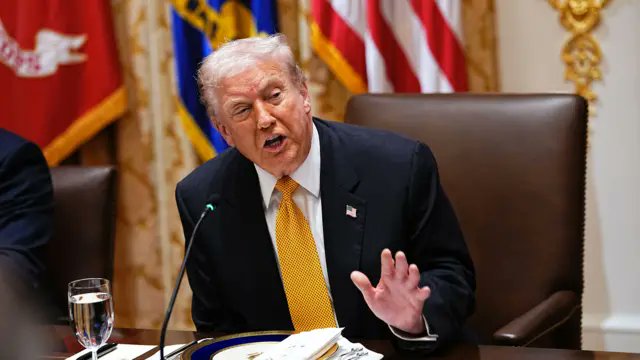
As Joburg prepares to host the continent’s first G-20 Summit, a US boycott casts a long shadow
A Historic Summit Meets an Uncomfortable Reality
Johannesburg is buzzing this week, not just with motorcades and visiting heads of state, but with the unmistakable tension of a global political standoff. As South Africa prepares to host the continent’s first-ever G-20 summit, a moment meant to symbolize Africa’s arrival at the top table of economic diplomacy, the United States has delivered a diplomatic blow that many in Pretoria describe as both “hostile” and “deeply disrespectful.”
According to internal communication seen by Bloomberg, Washington has issued a formal warning to Pretoria: do not push for a joint G-20 statement. It will be blocked.
The problem? The US isn’t even attending.
This is no ordinary disagreement. It’s unfolding as President Cyril Ramaphosa prepares to hand over the G-20 presidency to President Donald Trump, a leader who has repeatedly clashed with him in public and behind closed doors.
Behind the Boycott: A Relationship Gone Frosty
The tension didn’t start this week. South Africans still remember the awkward images earlier this year, when Ramaphosa was subjected to a public dressing-down in the Oval Office, a moment that triggered both national embarrassment and collective irritation online.
Soon afterward, Trump announced he wouldn’t attend the Joburg summit at all, escalating the feud by declaring a complete boycott of the event and its preparatory meetings.
Washington insists that South Africa’s priorities, themes like “solidarity, equality, and sustainability” championed by Ramaphosa, run counter to US policy under Trump. It’s an unusual criticism, given that the previous three G-20 leaders, all from the Global South (Indonesia, India, Brazil), had advanced similar principles.
Locally, political analysts say this is part of a broader pattern. Trump has repeatedly accused South Africa of “genocide against White Afrikaners” and “land seizures”, claims that have been dismissed by Pretoria, legal experts, and international observers as unfounded.
“It’s not policy disagreement. It’s political theatre,” a senior South African diplomat shared privately on Wednesday.
South Africa: ‘We Cannot Be Bullied From Afar’
Despite the boycott, Pretoria is pushing ahead.
Chrispin Phiri, spokesperson for South Africa’s foreign ministry, was unequivocal:
“We cannot allow coercion by absentia… It’s a recipe for institutional paralysis.”
From Pretoria’s perspective, the US is attempting to sink a consensus declaration simply because it is choosing not to participate an act that officials see as both unfair and destructive to multilateral cooperation.
South Africa wants a joint declaration not only to cap its G-20 presidency, but also to cement the growing influence of the Global South in shaping global governance.
Brazil, which takes over the presidency after the US, strongly supports Pretoria.
Germany has also thrown its weight behind South Africa, and several European nations say they’re open to a full declaration or, at worst, a less formal chair’s summary.
So the coalition is forming, with or without Washington.
What’s Really Holding Up the Talks?
Behind the scenes, negotiators say the hardest sticking points are gender equality and climate commitments. Argentina a close US ally, has reportedly resisted language around climate finance and global agreements.
It’s a familiar divide: the emerging world wants stronger commitments; some right-leaning governments want fewer.
Meanwhile, global leaders are trickling into Joburg, from India and Turkey to several European prime ministers. Japan’s Prime Minister Sanae Takaichi is attending in person. China’s Xi Jinping is sitting this one out, sending Premier Li Qiang instead.
In South Africa, the arrival of these delegations, helicopters overhead, blue-light convoys, secure zones around Sandton, has become an unofficial spectacle of its own.
Trade Tensions Add Fuel to the Fire
If diplomacy wasn’t strained enough, Trump’s administration recently slapped 30% tariffs on South African export, the highest rate applied to any African country.
For local exporters, especially in manufacturing and agriculture, the tariffs are a gut punch. For Pretoria, they’re a message.
Foreign Minister Ronald Lamola told the Bloomberg Africa Business Summit that South Africa has tried repeatedly to mend things:
“We have always been open, the aggression is on the side of the US.”
His comment sparked a wave of South African social media reactions, from memes mocking Trump’s “posture politics” to serious concerns that the US may be isolating itself from African and emerging markets at a crucial moment.
Why This Matters for South Africa and the Continent
This weekend’s summit was supposed to be a celebration of African diplomacy on the global stage. Instead, it has become a litmus test for how major powers engage with emerging nations when they are not in full agreement.
If South Africa manages to secure a joint G-20 declaration despite the boycott, it will be a major symbolic win for Africa’s voice in global affairs.
If not, Washington’s absence may cast a longer shadow over multilateralism, raising uncomfortable questions about the future of the G-20 itself.
{Source: BusinessTech}
Follow Joburg ETC on Facebook, Twitter , TikTok and Instagram
For more News in Johannesburg, visit joburgetc.com

